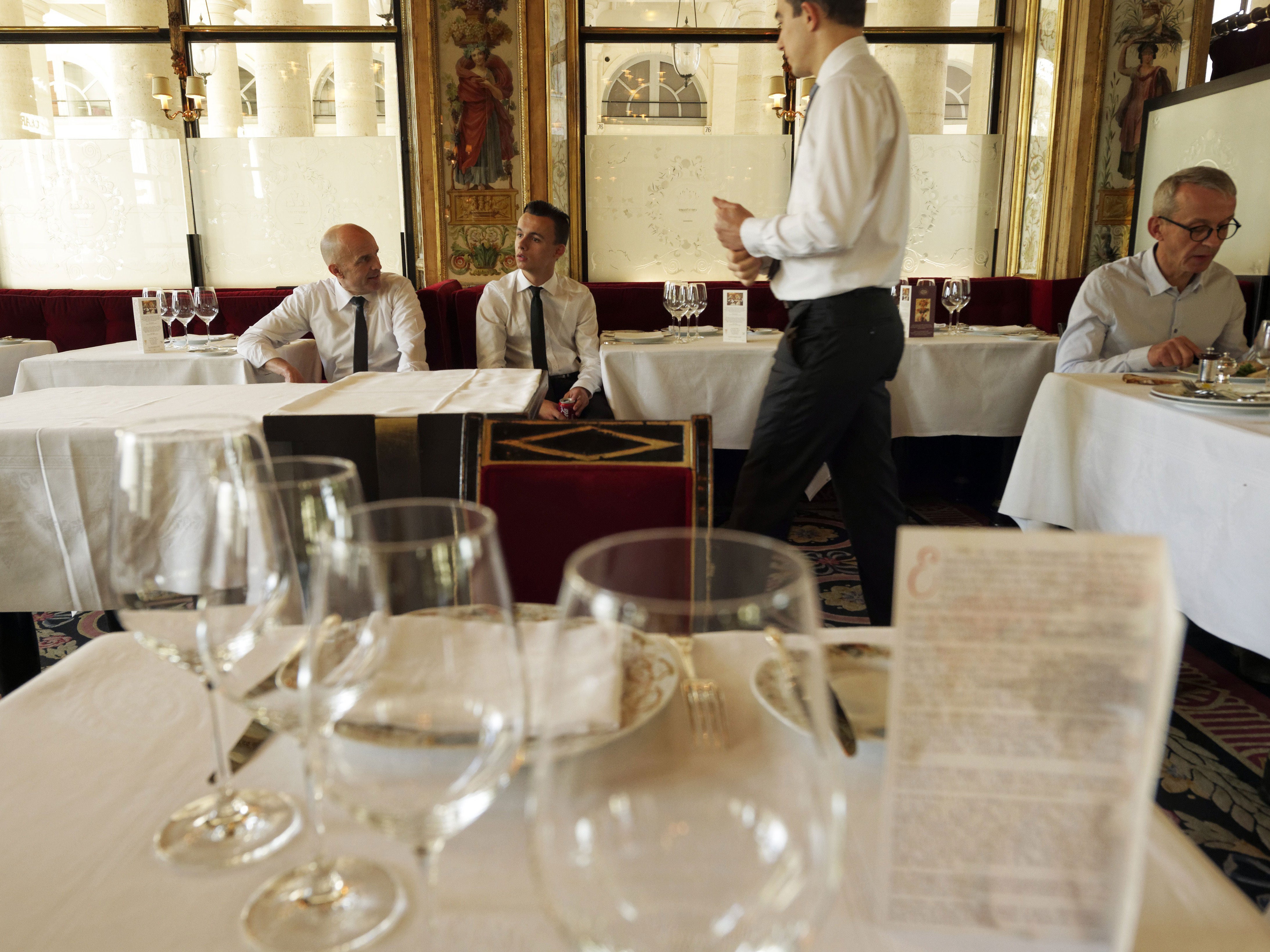The annoying restaurant trend ruining our dining experience
Without my permission, restaurants have abandoned, or simply overlooked, a classic tenet of service etiquette

The other night I was eating a plate of noodles, and enjoying it. I was out to dinner with a friend, hunched over a meal we had been planning for weeks. The restaurant was newly opened and highly regarded. Life was good. And the food was great.
But then it happened. Again.
“Are you done with that?” the server asked, fingers already comfortable with the rim of my plate. “Can I get it out of your way?”
Yes, I had finished eating, because I am a vacuum; there was no food left in front of me. But my friend had not. His meal was only half-consumed.
"No," I said. "We're not done eating."
Without my permission, restaurants have abandoned, or simply overlooked, a classic tenet of service etiquette (I'm talking about entrees, not the ubiquitous small plates, which demand a different etiquette). Rather than clear plates once everyone at the table has finished the meal, which has long been the custom, servers instead hover over diners, fingers twitching, until the very instant someone puts down a fork. Like vultures, they then promptly snatch up the silverware — along with everything else in front of the customer. If you're lucky, they might ask permission before stealing your plate.
When a server clears a plate before everyone is finished, he or she leaves the table with a mess of subtle but important signals. Those who are still eating are made to feel as though they are holding others up; those who are not are made to feel as though they have rushed the meal. What was originally a group dining experience becomes a group exercise in guilt.
I'm not the only one who has noticed.
“It's definitely been getting worse,” said Tyler Cowen, an economics professor at George Mason University who has written extensively about the economics of eating out. “It's a problem. I don't like it, either.”
A chorus of disapproval has surfaced elsewhere, too. Some examples: SF Gate, the San Francisco Chronicle's sister site, ran a short piece in 2008 imploring waiters to be patient. Adam Roberts, the founder of the popular food blog the Amateur Gourmet, did the same in 2012. And the New York Times, as part of a long list of no-nos for restaurant staffers, included this: “Do not take an empty plate from one guest while others are still eating the same course. Wait, wait, wait.”
Why that subtlety seems to evade so many restaurants these days is unclear.
It's possible that there's an economic impetus behind it. “The price of land is going up, which pushes up the value of each table,” said Cowen. “That makes moving people along more important.”
A similar trend, after all, sees many restaurants hoping that diners don't order dessert, because the course isn't terribly profitable and it encourages people to linger.
But maybe waiters are clearing individual plates because they believe that's what customers want. I have heard as much from servers.
The sad truth is that the unfortunate trend is perhaps the most unfair to waiters, who have to cope with much of the fury but are actually not the ones to blame. Those at fault would be the managers who push them to move tables and the diners who demand that their plates be taken away immediately, even when others at the table are still enjoying their food.
Waiters are merely caught in the middle.
Still, the reality remains. And it's not a kind one. Publicly, restaurants might argue that they are trying to avoid clutter; privately, they might encourage waiters to speed tables along; but what it amounts to is an uncomfortable dining experience, for diners and servers alike.
Copyright: Washington Post
Join our commenting forum
Join thought-provoking conversations, follow other Independent readers and see their replies
Comments
Bookmark popover
Removed from bookmarks